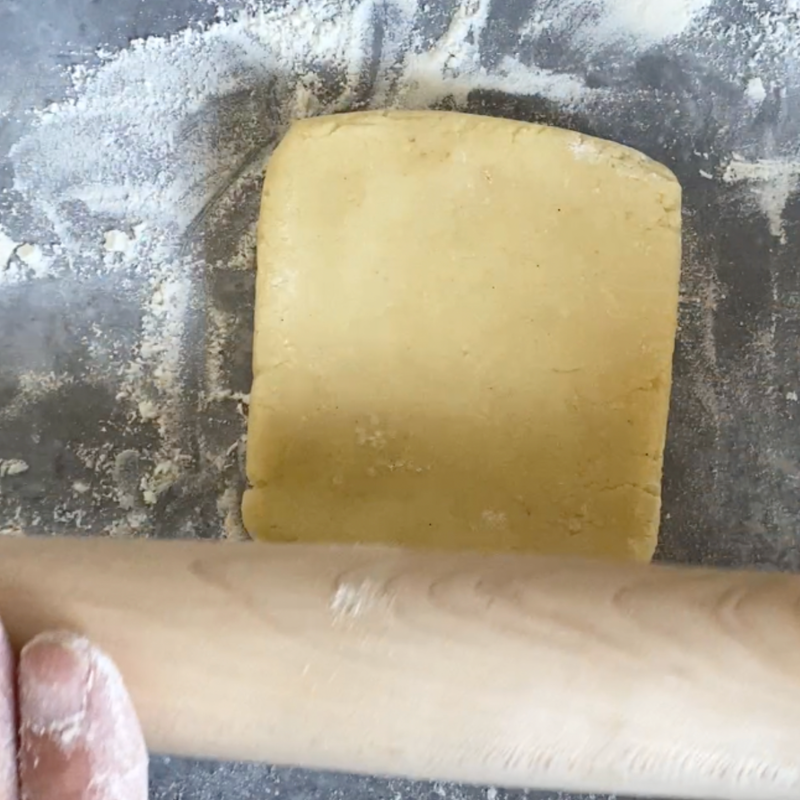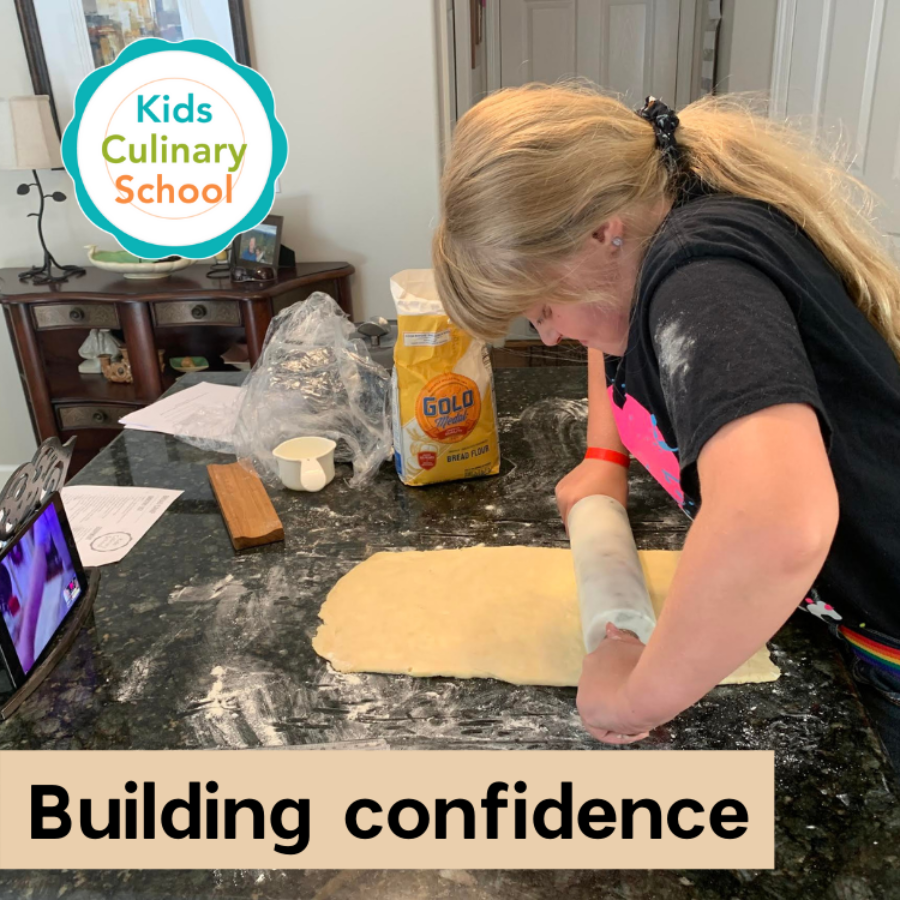|
So you have a budding young chef in your household and he/she is begging you to let them cook in your kitchen. But you don’t know what to give them in regards to tools and equipment. Let me make it easy for you! After years of cooking and baking with children we have come up with a comprehensive list of kitchen tools, equipment, and basics that everyone should have in their kitchen. Your kid doesn’t need a bunch of special equipment to become proficient in the kitchen. It is more about it being the right fit, size and with little bit of foresight and you can let them cook up a storm. But you will need a few basic things to make sure your kid is successful in the kitchen.
Let us get into the nitty gritty of these items:
Let's start with the most controversial item: the knife. The knife needs to fit well in your child's hand, their fingers should fit around the handle and I personally think a chef knife is better then a small paring knife. There is something about holding a knife with some weight that makes it feel more secure, these little paring knives are just too light too pointy and just too dangerous in my opinion. (Don’t know your knifes? Here is a guide) there is a good chance that you already have one that works. Take a couple of minutes with your child and find the knife that really fits. But one thing is make sure the knife is sharp, a dull knife is actually more dangerous. Here is a video on how to sharpen a knife. Do make sure that you store the knife in a safe place out of reach, especially if you have younger kids who are not ready to use the knife. I teach my students to keep their knife above the cutting board with the blade facing away, when not in use, so that the knife can not be accidentally knocked off the counter. Speaking of knives, as a parent I can remember the first few times I handed my child a chef knife and boy was I freaked out. But over the years of teaching children how to use knifes, I can tell you that a good sharp knife will do less harm then us giving them “child safe” plastic knives which in theory seem safer but ultimately they will need to apply too much pressure and they are just not sharp enough which can lead to accidents. If you are not ready to hand your kid a chef knife (no judgment here!), try these amazing cut resistant gloves. They will not break the bank and oftentimes double as pretty decent potholders to protect those little hands. A good cutting board is a dream. I like mine heavy, big and wooden. This would also be a great gift idea for your child. There are so many different cutting boards out there, it would be easy to cater to your child's preferences. What do you look for? It is important that the cutting board lays flat on the counter, if it is made of plastic or glass, they sometimes like to move around depending on what surface the cutting board is sitting on. A moist paper towel, or dish towel placed under the cutting board will keep it in place. Also it is always nice to know that it can fit in your sink, for easy clean-up and that your child can carry it easily. Spatulas and spoons to stir that don't get hot when cooking, or that can easily melt or break. Just remember they are still learning. So don’t give your kid a metal spatula in a non-stick pan! They need to learn about everything else and not have to worry about damaging the pots and pans on top of it. Your pots and pans should sit securely on your stovetop, we don't want them to be too small and wobble. They should sit securely on the burner. Any pots that don’t should be hidden from the kids. It would be great if they have lids and lastly I always recommend pots that have handles that do not get hot. If that is all you have you can purchase silicone handle protectors. A set of measuring spoons & cups are a must, a liquid measuring cup would also be amazing, especially if it can be set in the microwave. Please keep the measuring spoons and cups on the ring it comes with, it is really difficult for the kids when they have to search for the missing measuring spoon or cup. Zesters, my favorite is a micro blader, but whatever you have at home will be fine, don’t overthink this one. If we are after some lemon zest we will figure it out. If you want to go all out, a simple citrus juicer is a nice things to have, but a fork will do the trick. If your child is not able to stand at the counter and comfortably reach everything and or get proper leverage while cutting should have a secure stepping stool to stand on. Most of us still have those around, it’s worth pulling it back out of wherever it's hiding. :) A colander that can sit securely in your sink, when draining pasta. You don't want your child to have to hold a colander while pouring off boiling water. 2. Simple equipment like an electric mixer, and food processorI am not a big fan of a lot of gadgets, but an electric mixer will make your life easier, especially when whipping cream or egg whites. It does not need to be a super fancy stand mixer, though I do recommend that you get an electric mixer that also has a whisk attachment! Like this (I do not get any cut for any of these items, these are just examples) A food processor is great for making pesto, smoothies, ice cream, gelato, sorbet, etc. It also works great for chopping up things like onions or carrots. This piece of equipment is not a must but sure is nice to have. Make sure you show your kids the blade, explain that this is nothing but a knife, so they need to treat it with the utmost respect. Also show them how to turn the food processor on. I like to do several test runs, because if you have ever used one of those machines, you know. :) 3. Kitchen basics like a set of good potholders, apron, dishtowels, spongesInvest in some good fitting potholders, for me this is probably the one thing that is an absolute must! They can’t be too bulky, you still need to have some dexterity while wearing them. I prefer the mitten style, just because your hand is fully protected.
Make sure those potholders are not close to any water, a moist or wet potholder is absolutely never to be used on anything hot! Aprons are nice but not necessary. I go back and forth of wearing an apron. Obviously as a chef we wear our uniform but when I cook at home I oftentimes don’t wear one. But for kids it creates another layer of protection. Aprons protect your child's clothing from stains but also they protect your child from potentially spilling hot liquids on them. An inexperienced chef should always wear long sleeve cotton shirts to protect arms from spills and burns. Of course close toed shoes are also a great idea, just in case a knife falls or something spills. In my classes I always teach the kids how to clean up, so make sure they know where everything is for that. I like to tell them before they start that I expect the kitchen to look the way they found it when they are done. Get them their own sponge, soap and dish towel if you have a very anti-cleaning child, sometimes that is all it takes. Sometimes even a little rug on the floor, kids can get a little messy and a wet floor can cause someone to slip and fall, so maybe invest in a cheap little non-slip rug to lay on the floor in front of your sink. I hope these tips and tricks were helpful. If you have any tools or items you find super helpful in your kitchen do let me know, I am always curious how other people manage their spaces. Chef Pascal
0 Comments
|
AuthorBefore founding Bake Austin, Pascal Simon earned her degree as a Pastry Chef from the prestigious Auguste Escoffier School of Culinary Arts. A mother of two, Pascal is passionate about cultivating the next generation of bakers and welcomes children from all schooling backgrounds, whether public, private or homeschooled. Archives
October 2023
Categories |
|





 RSS Feed
RSS Feed